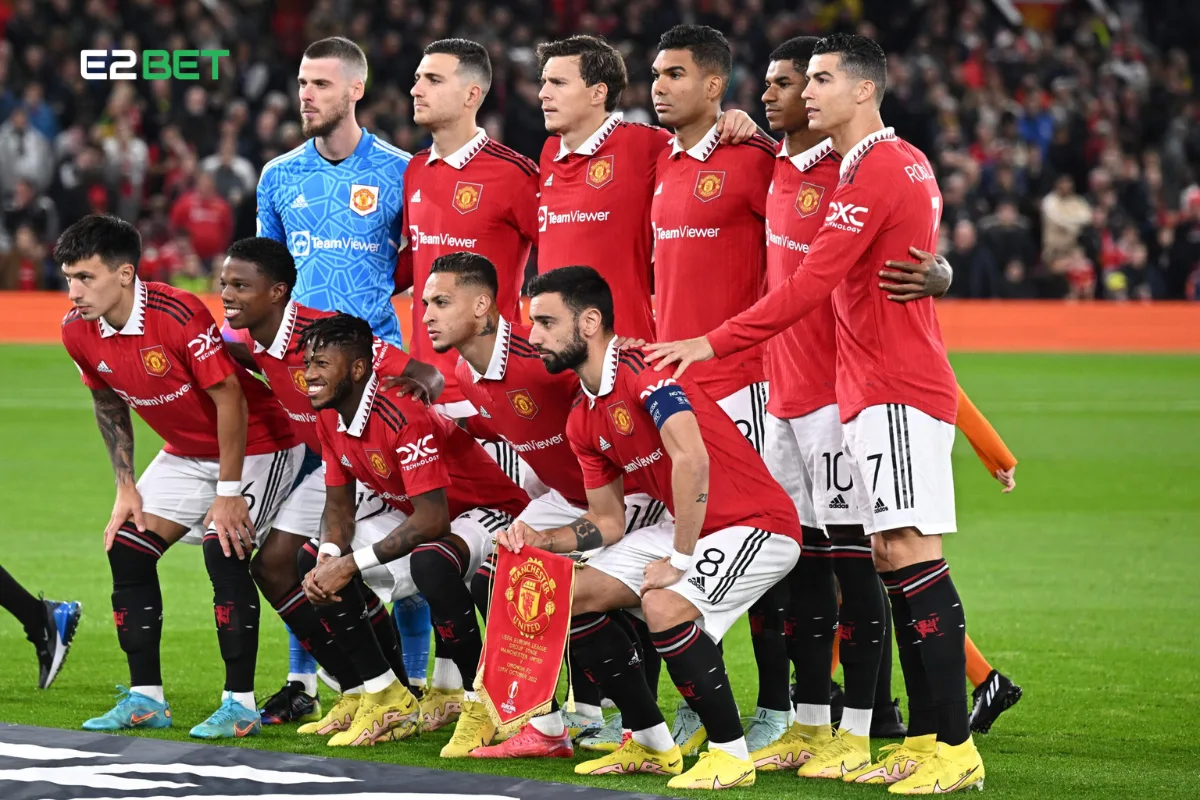Manchester United has long been one of the most iconic football clubs, but recent years have seen a rollercoaster of performance, transfer policies, and managerial shifts. With Erik Ten Hag at the helm, fans and analysts alike are watching closely for any real signs of club revival. Are these green shoots truly the beginning of a sustained comeback, or just another false dawn in a decade of erratic football performances?
Manchester United’s Recent Performance: A Closer Look
Early Signs of Recovery?
Manchester United’s recent performance under Erik Ten Hag suggests promising tactical changes and renewed team chemistry. The club’s official website and latest news reports highlight how Ten Hag’s strategic influence is reshaping the squad. With better squad cohesion and tactical flexibility, the Premier League club revival seems more than just hype.
The Impact of Erik Ten Hag’s Tactical Philosophy
Tactical Changes and Team Chemistry
Erik Ten Hag’s approach emphasises a blend of solid defence and quick transitions, fostering team motivation and player development. This tactical philosophy is crucial to rebuilding Manchester United’s football identity and improving their long-term football planning. The improved squad consistency reflects the positive changes made by management.
Youth Development: The Heart of Long-Term Strategy
Man Utd Youth Academy and Player Progress
One of the most encouraging green shoots is the resurgence of youth players stepping up from the Manchester United youth academy. Player development through youth  programs ensures a sustainable model for success, much like Liverpool’s football success journey. Developing homegrown talent builds club culture and instils a fighting spirit, vital for any football club’s future.
programs ensures a sustainable model for success, much like Liverpool’s football success journey. Developing homegrown talent builds club culture and instils a fighting spirit, vital for any football club’s future.
Transfer Policy: Signs of Smarter Investment
Analysing Recent Transfer History
Manchester United’s transfer policy has been criticised for years, but recent changes indicate a more focused approach. Astute signings aligned with the club‘s tactical needs enhance squad depth and performance metrics. Such an approach supports both short-term results and long-term club valuation growth.
Managerial Stability: Why It Matters
From Turmoil to Consistency
The Premier League club revival depends heavily on managerial influence. Stability under Ten Hag reduces the disruptive effects of frequent organisational changes, fostering better football team motivation and chemistry. The club management’s commitment to a long-term strategy signals a serious intent to rebuild.
Fan Sentiment and Media Pressure
Handling Expectations and Club Identity
Football fan sentiment and media pressure often weigh heavily on Manchester United’s performances. However, growing fan support and a positive clubhouse culture are vital to sustaining any football club’s recovery. Managing football egos and media narratives remains a critical challenge for Ten Hag and his team.
Commercial Growth and Brand Strength
Off-the-Pitch Success
Man Utd‘s commercial growth continues to be impressive, with sponsorship impact on football clubs translating into financial muscle. This commercial strength helps the club maintain a high club valuation and invest in world-class talent. The balance between commercial success and on-field performance is key to long-term stability.
Lessons from Other Premier League Rebuilds
Chelsea and Liverpool as Case Studies
Chelsea’s football rebuild and Liverpool’s journey to success offer valuable lessons. Both clubs faced periods of inconsistency but leveraged strong management, tactical evolution, and youth development to become top contenders. Manchester United’s blueprint mirrors these proven strategies.
Challenges Ahead
Avoiding Another False Dawn
While there are promising green shoots, the club must avoid complacency. Consistent performance, tactical adaptability, and maintaining squad harmony will determine whether this is a genuine revival or just another false dawn. Only time will tell if Manchester United can return to its former glory.
Conclusion
Manchester United’s journey to recovery is underway, with Erik Ten Hag’s leadership sparking hope among fans and experts alike. The combination of tactical improvements, youth integration, more intelligent transfers, and managerial stability points to a positive future. However, the football world knows all too well how easily hope can turn to disappointment. Keeping fan support strong and managing media pressure will be vital as Man Utd navigates this critical phase.
FAQs
Q1. What tactical changes has Erik Ten Hag implemented at Manchester United?
A1. Ten Hag has introduced a more disciplined defensive structure and quicker counter-attacks, focusing on team cohesion and tactical flexibility.
Q2. How important is youth development for Manchester United’s future?
A2. Youth development is crucial. Promoting academy players helps sustain long-term success and reinforces the club’s identity.
Q3. Has Manchester United improved its transfer strategy recently?
A3. Yes, recent transfers are more targeted to fit tactical needs and strengthen squad depth, moving away from past erratic signings.
Q4. Why is managerial stability necessary for club recovery?
A4. Stability reduces disruptions and helps build consistent performance, critical for rebuilding team chemistry and morale.
Q5. Can Manchester United avoid another false dawn?
A5. It depends on maintaining consistent results, tactical adaptability, and managing fan and media expectations effectively.